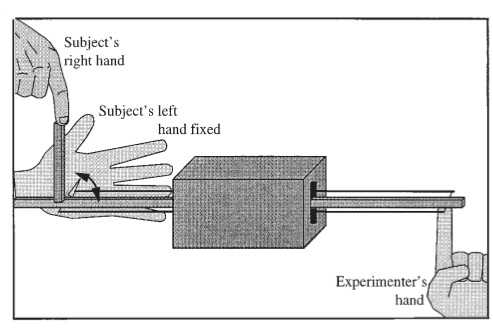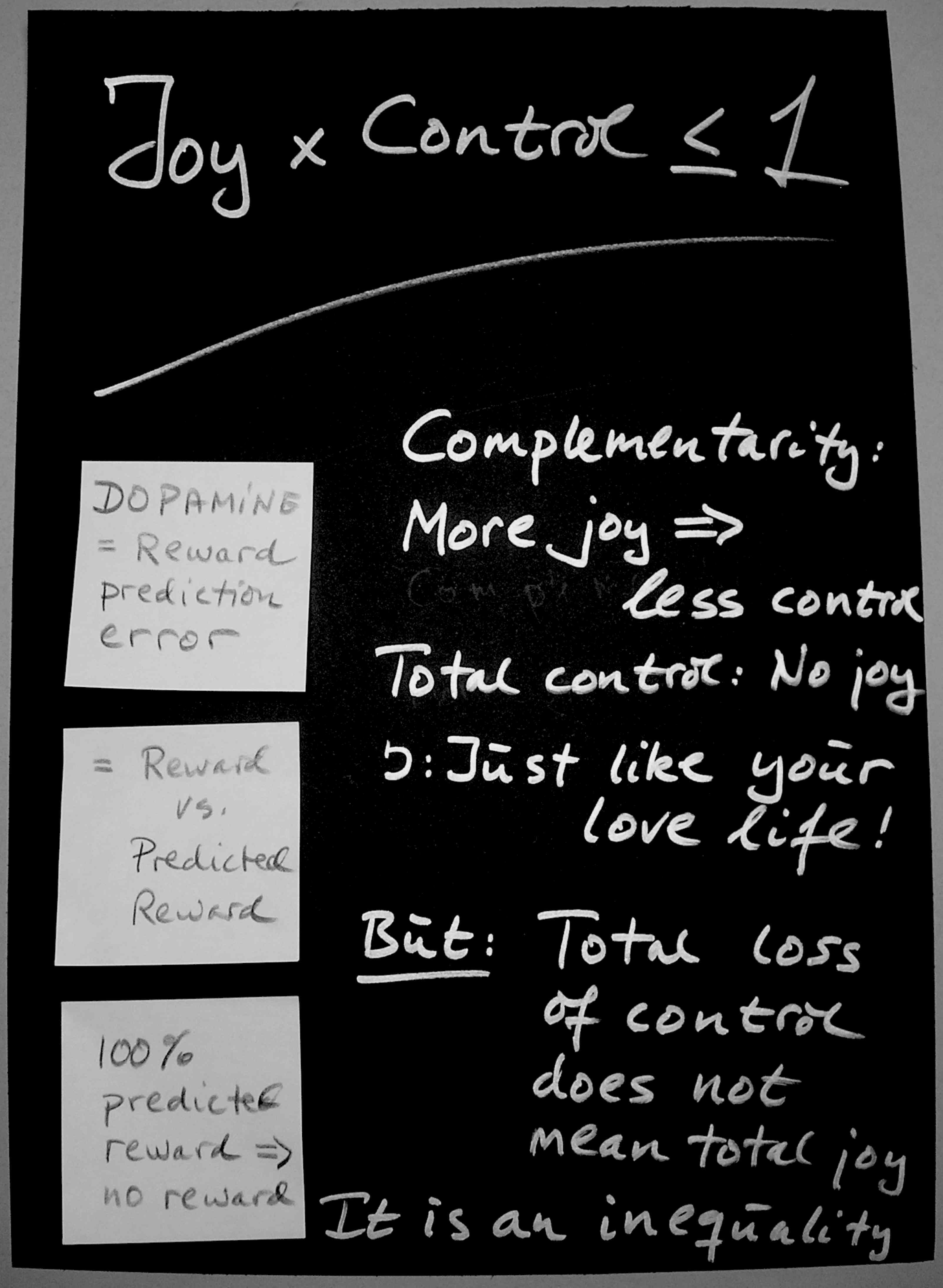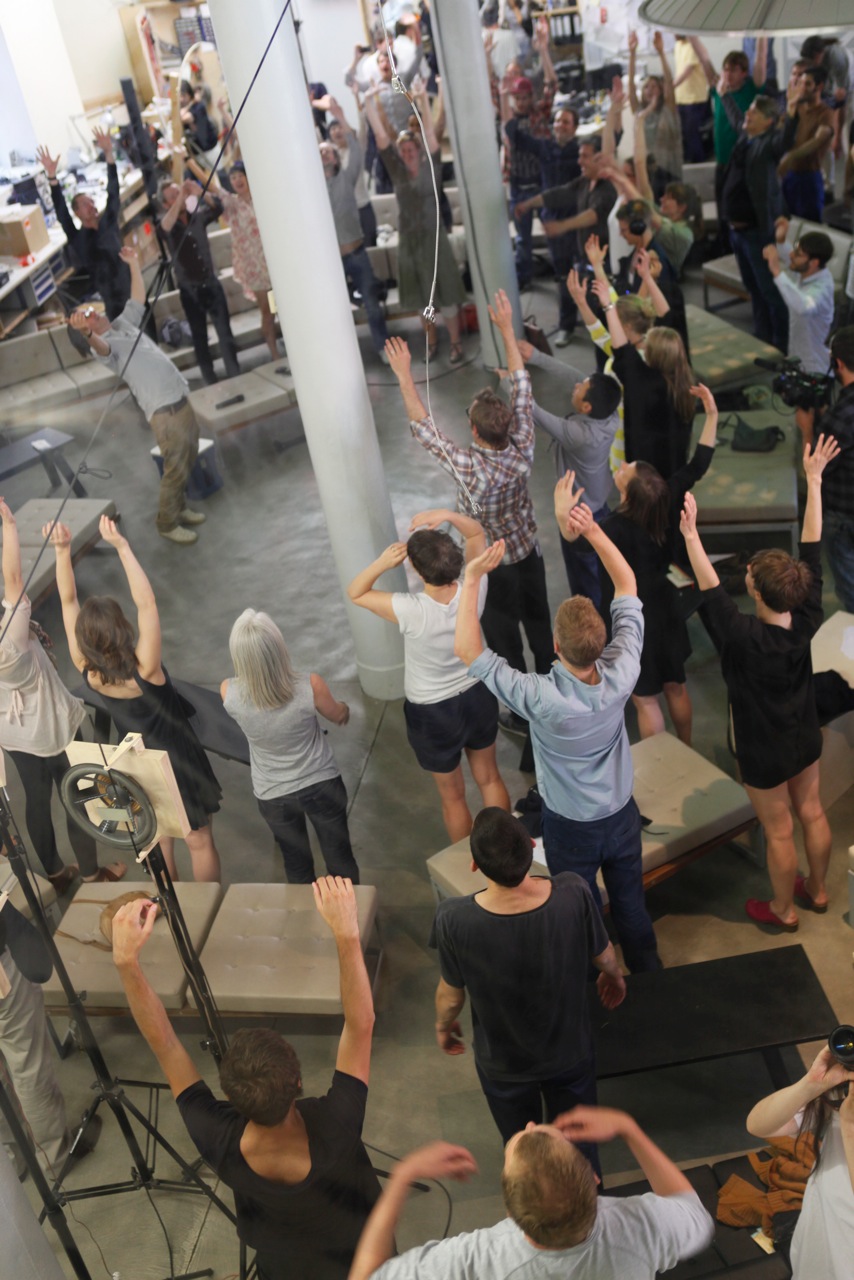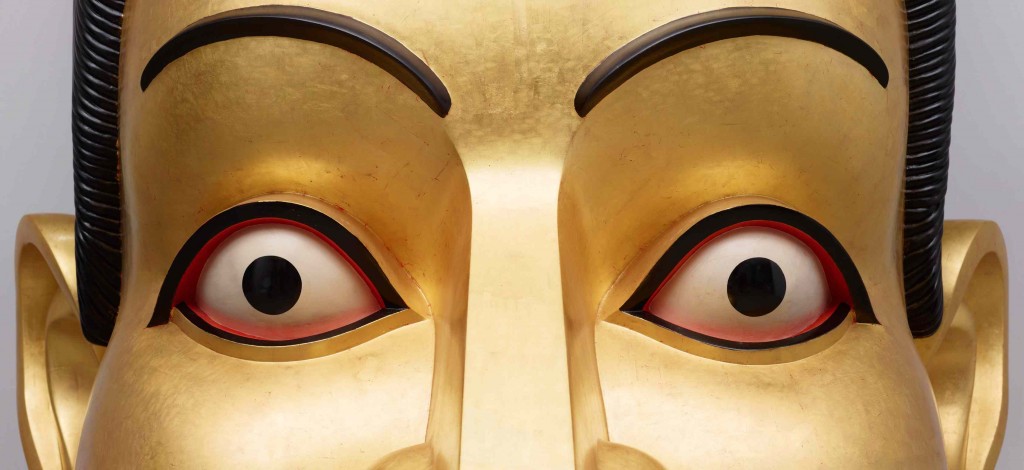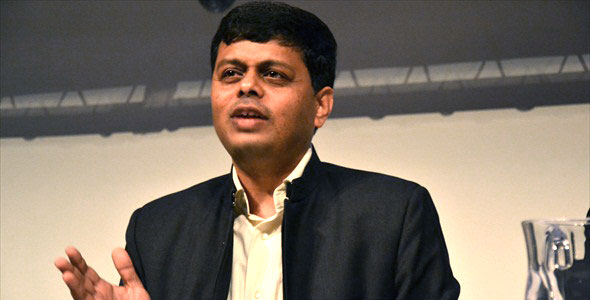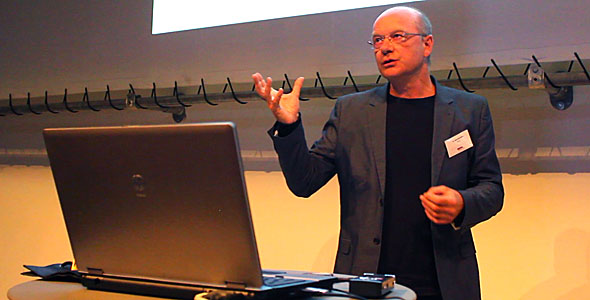Laughter, joy and thrill is evident in this large group of people taking part in a seminar at Studio Olafur Eliasson in Berlin. I performed my Tickling Experiment with the audience. The result is vividly documented in this film clip by Tomas Gislason. Watch the clip and read here about the scientific background for the tickling exercise.
Danish-Icelandic artist Olafur Eliasson runs an outstanding studio in Berlin. More than 50 people work in a large building housing studio, offices, labs, machine shops, an art school being part of Berlin art university UdK and numerous other big and small activities — all orbiting around the extraordinary installations and other artwork flowing from Olafur Eliassons imagination. From idea to installed work of art there is a huge amount of logistics, craft, design, trial-and-error as well as group work.Truly a laboratory producing hitherto unseen phenomena.
A much larger group than the 50 who work there on a day-to-day basis interact with the Studio throughout the year. They are brought together for seminars:
“Almost annually since 2006, Studio Olafur Eliasson has hosted a get-together called Life is space. For this day-long event, scientists, artists, scholars, dancers, theorists, spatial practitioners, and movement experts come together with the Institut für Raumexperimente participants and the studio team to share, discuss, present, and experiment. These meetings are only loosely planned in advance and are largely left to intuition and serendipity.”
I have had the great fortune of taking part in all of them, watching the seminars developing from mostly talks and discussions into more and more emphasis on experiments. At the most recent “Life is space” I contributed the tickling experiment.
A film is being produced (edited by the exceptionally gifted and skilled Tomas Gislason) to document this Life in Space 4 event that took place on 17 June 2011. The following clip is a preview of the film, posted on the Studio Olafur Eliasson homepage yesterday:
The Tickling Experiment was developed over some years when I was lecturing about my 2007-book (in Danish only) glæd dig dealing with joy and happiness. In the book I describe scientific experiments with tickling developed by a british group of neuroscientists interested in how we perceive the difference between ourselves and others. In a wonderful scientific paper with the unusual title “Why can’t you tickle yourself?” the authors Sarah Jayne-Blakemore, Daniel Wolpert and Chris Frith describe how the tickling sensation is rooted in the element of surprise that stems from you being tickled by someone else.
You need the surprise to feel the tickling. No joy without other people. Well, no joy without the surprise. You can in fact tickle yourself, but then you have to cheat yourself. The three neuroscientists described a tickling machine:
(From 1998 article by Jayne-Blakemore, Wolpert and Frith.)
This construction makes it possible to tickle yourself because the brain cannot keep control with the movement because it is being displaced in time and space by the odd connections.
But as the video shows, it is easier to have someone else tickling you.
In my book glæd dig I developed the idea that joy and control do in fact exclude each other. Neuroscientific experiments shows that when you get something you really like (such as a monkey having orange juice) you produce neurotransmitters for instance dopamine. But if you are told that you will get a reward later, you produce the dopamine when the message comes, not when the juice is served. Thus, monkeys like you and me will not enjoy treats that we are sure we will have. Control and predictability ruins the feeling of joy. This observation was based in work done by Wolfram Schultz (see his somewhat technical Scholarpedia article about the issue).
Not that there is anything wrong with having a warm shower in the morning, it is just that we do not feel joy when we observe the water running from the pipes. We only feel disappointment when it is not running. Thus the more predictability and control we have, the less joy we feel.
When lecturing about the book I started doing simple tickling exercises with audiences, discovering how a few straight instructions could gently turn an audience into a thunder of laughter in a split second. Having cultivated the exercise for years, I found the warmest and most receptive audience ever in the Life Is Space group. It is a thrill that is was recorded with such skill. Looking forward to the film!
At the time I was working on the book, New York literary agent and editor of the wonderful edge.org website John Brockman and art curator Hans Ulrich Obrist asked a group of people to send in formulas to be exhibited at the Serpentine Gallery in London where Obrist is co-director. My contribution was this complementarity between joy and control:
Back to the Life is Space 4 seminar:
Another experiment at LIS 4

